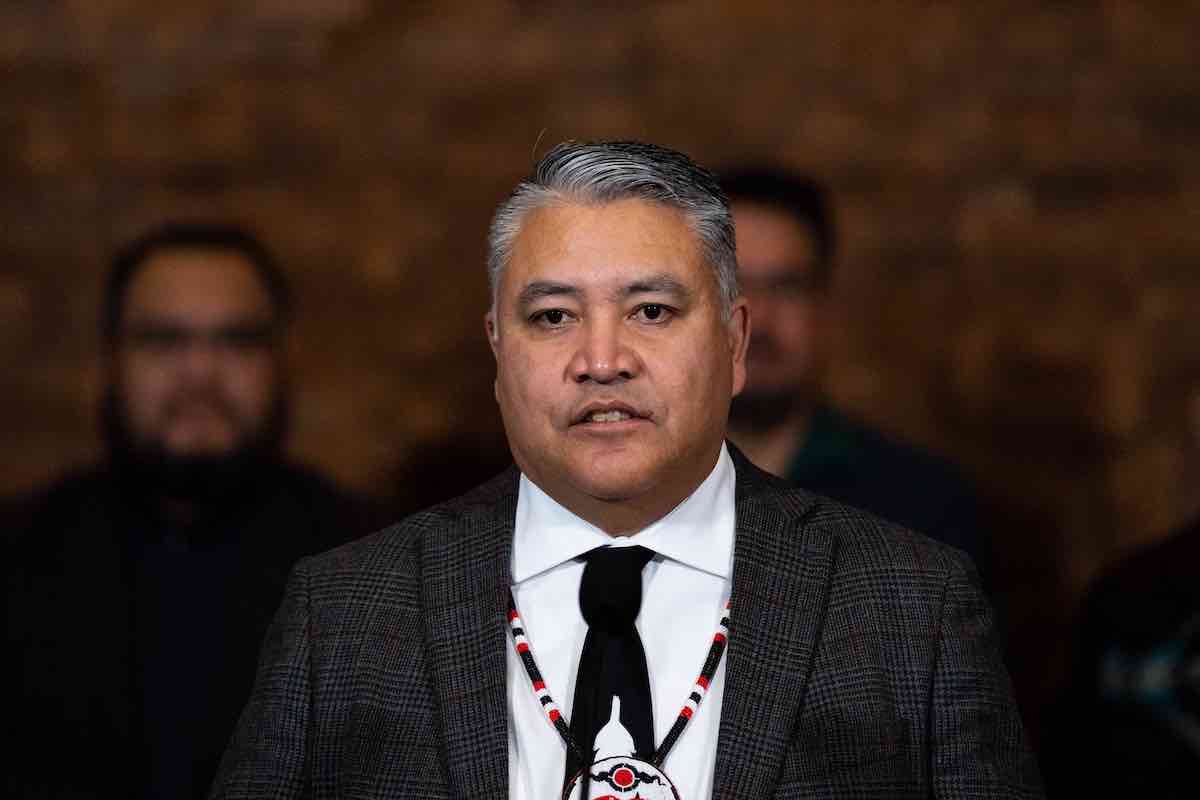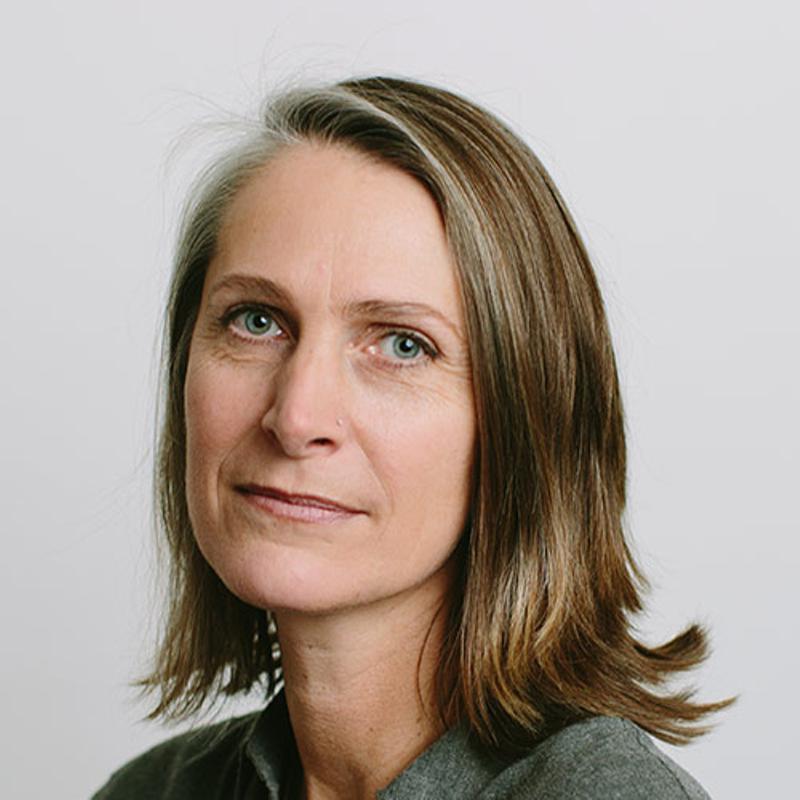Facing public backlash encouraged by opposition parties, the B.C. government has cancelled planned changes to the Land Act, Minister of Water, Land and Resource Stewardship Nathan Cullen said Wednesday.
While the government said the changes were necessary to allow it to enter into land-use agreements with First Nations, opponents accused it of planning to quietly pass control over the vast majority of the land base to First Nations.
“We know that we need to deepen and broaden our engagement and consultation with respect to this particular issue,” Cullen said, noting that the government had engaged with more than 650 individuals from various sectors over the past seven weeks.
“There was a great deal of misinformation that was intentionally spread, I would offer, by some members of the opposition, which was distasteful, very unfortunate and in fact quite damaging,” he said.
Opposition politicians who voted in favour of the Declaration on the Rights of Indigenous Peoples Act, the B.C. law that requires the province’s legislation to be brought into line with the United Nations Declaration on the Rights of Indigenous Peoples, are now working against its implementation, said Cullen.
“The dog whistle politics was abhorrent, and I hope it stops,” he said, though he acknowledged that the government’s poor communications about the changes had left room for the opposition to sow distrust.
“I hope this gives us the peace and the calm that is required to have these important conversations with British Columbians.”
Reaching land-use agreements benefits everyone, Cullen said. “We create more opportunities not just for First Nations people but for, broadly, British Columbians.”
Cullen said he’d had conversations about the decision to pause with the First Nations Leadership Council and other Indigenous leaders. “The commitment of our government to reconciliation, to the declaration act, remains,” he said. “Our ability to work together to reconcile these things... is of paramount importance to our government.”
BC Assembly of First Nations Regional Chief Terry Teegee described misinformation circulating about the proposed changes as “disappointing,” but welcomed the opportunity to better communicate what they would mean for reconciliation in the province.
“It’s cutting to the chase of negotiating shared decision-making on how lands are used and how natural resources are used,” Teegee said. “We need to be part of any process in terms of land-use and Land Act decisions.”
Teegee pointed to court cases, such as Delgamuukw-Gisday’wa and Tsilhqot’in, that have repeatedly affirmed the need to include First Nations in decisions that would impact their traditional territories.
“In the end, we’re going down this road no matter what party is in power,” he said. “There needs to be some sort of commitment to reconciliation and shared decision-making.”

Plans to change the Land Act and bring it in line with the Declaration on the Rights of Indigenous Peoples Act were originally posted to the province’s engagement website in early January. The ministry did not issue a news release and the plans appeared to go largely unnoticed until a law firm posted about the changes, saying they would give “veto power” to First Nations over land-use decisions in the province.
A media storm followed as pundits and politicians accused the provincial government of quietly trying to pass amendments that would give First Nations control over the vast majority of B.C.’s land base, which is 94 per cent Crown land. The Land Act is the primary legislation used to manage the land base and issue land tenures such as leases, licences, permits and rights-of-way.
Earlier this month Conservative Party of BC Leader John Rustad, who once served as minister of Aboriginal relations and reconciliation in a BC Liberal government, called the proposed changes “an assault on your private property rights” and said the Conservatives he now leads would defend the right to outdoor recreation, water access, mining, forestry, agriculture and “every other land-use right British Columbians currently enjoy.”
Rustad suggested B.C. repeal DRIPA — legislation that he voted for as a BC Liberal MLA.
Days later, BC United Leader Kevin Falcon issued a similar statement, saying the proposed changes were secretive, misleading and undemocratic. They would give “veto power” over most of B.C.’s land to “five per cent of the population,” Falcon wrote.
The criticism came despite First Nations groups defending the proposed changes. In a Feb. 1 statement, the Union of BC Indian Chiefs called the claims “inaccurate and unhelpful.”
“Contrary to comments that have been made about the proposed Land Act amendments, they will not grant a ‘veto’ to First Nations governments, and they will not immediately alter the existing land tenure system in British Columbia,” the organization wrote, adding that the proposed changes were the “critical next step” in implementing the Declaration on the Rights of Indigenous Peoples Act.
After Cullen announced the pause Wednesday, Falcon declared victory. In a written statement he said his party had “relentlessly opposed the NDP’s flawed and dangerous changes to the Land Act” from the beginning. “Today’s ‘pause’ is a direct result of the unwavering dedication of stakeholders, the people of British Columbia and the proactive efforts of our BC United Caucus.”
The consultation process was a rushed attempt to bypass public engagement and scrutiny, Falcon said, adding that should raise concern in the province. He accused the NDP of having a “hidden agenda” and planning to resume the changes at the next opportunity.
“Rest assured, we will keep the pressure on David Eby and the NDP government, who have shown their cards that they will continue to pursue their extreme ideological agenda,” he said. “Public land belongs to all of us, and we will fight to keep it that way.”
The topic came up during question period at the legislature Wednesday.
Ellis Ross, the BC United MLA for Skeena and a former chief councillor of the Haisla Nation, said the government is to blame for any damage to reconciliation. “You actually pitted Natives against non-Natives for political purposes,” he said. “If it wasn’t for the BC United Party going to do town halls to try to explain that we don’t know what it’s about, people wouldn’t have had their voice.”
The Conservatives’ Rustad said the government is ultimately responsible for land-use decisions and that joint decision-making is a step too far.
“The government of British Columbia is responsible for making sure that decisions are made on the land base for all British Columbians, taking all British Columbians' interests into consideration,” Rustad said. “When that decision-making is made jointly with First Nations, what you're talking about is First Nations making decisions that are in the interest of the First Nations, not for all people in the province.”
The pause and what led to it are disappointing and infuriating, said Adam Olsen, the BC Green Party MLA for Saanich North and the Islands. “It was, I think, one of two potential outcomes from the way that this was proposed and the way that it has gone over the last number of weeks,” he said in a scrum.
Olsen, who is a member of the Tsartlip First Nation, said it’s one of the few issues since he was elected that have kept him up at night.
The government’s failure to announce the engagement process, the media’s reporting on the issue and the opposition’s “despicable” statements have unnecessarily “done tremendous damage to reconciliation,” he said.
The conflict over land goes back to before British Columbia existed, Olsen said. “I think [the Land Act amendments] needed to be brought forward in that context. It needed to be brought forward with that sensitivity at the heart of it.”
Because the Supreme Court of Canada has repeatedly upheld the duty to consult with First Nations, those supporting the legislative changes have argued that signing agreements with First Nations in advance of a project creates more stability for industry in the province.
However, in a statement issued Wednesday, Association for Mineral Exploration president and CEO Keerit Jutla applauded Cullen’s decision to pause the Land Act amendments, saying any changes “must be done in a way that brings stability and predictability to the mineral exploration industry.”
Speaking with The Tyee earlier this month, Cullen responded to fears that the proposed changes could make doing business in B.C. less predictable for industry.
“Rather than going through more court cases, going through more conflict,” he said, “why not enable the possibility of coming to a shared understanding over proposed projects, to give that predictability and to know early on if something is just not viable?”
It was already clear at the time of the interview, however, that Cullen planned to change direction. The province was “correcting and resetting the consultation process,” he said, but he did not provide details about what that reset might look like.
On Wednesday Cullen said the government plans to eventually open a new engagement process with interested groups, organizations and individuals on Land Act changes. “We'll talk about what the consultation process should look like, what's ideal.”
The Union of BC Indian Chiefs’ Grand Chief Stewart Phillip told The Tyee Wednesday that the decision to pause Land Act changes was understandable under the circumstances.
“We have a very strong working relationship with the Eby government and we've been engaged with the NDP since John Horgan,” he said. “We're going to continue that work.”
Phillip, whose wife, Joan Phillip, won election as an NDP MLA in a byelection last June, said he was “totally disgusted by the shameless partisan politics” of the BC United and Conservative parties and disappointed in their reversed stance on DRIPA.
But he said the work of reconciliation will continue.
“You cannot un-ring a bell,” he said. “The UN Declaration on the Rights of Indigenous Peoples and the subsequent DRIPA act in British Columbia represents that bell.” ![]()
Read more: Indigenous, Rights + Justice, BC Politics


















Tyee Commenting Guidelines
Comments that violate guidelines risk being deleted, and violations may result in a temporary or permanent user ban. Maintain the spirit of good conversation to stay in the discussion and be patient with moderators. Comments are reviewed regularly but not in real time.
Do:
Do not: